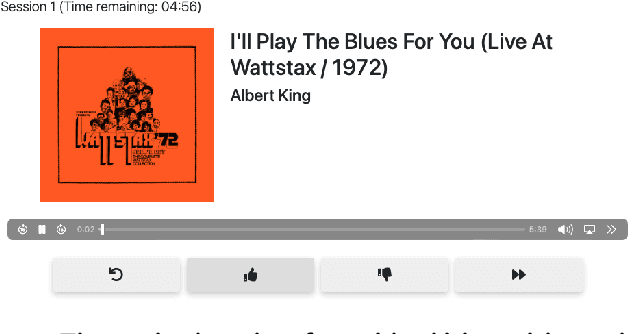Measuring Strategization in Recommendation: Users Adapt Their Behavior to Shape Future Content
Paper and Code
May 09, 2024



Most modern recommendation algorithms are data-driven: they generate personalized recommendations by observing users' past behaviors. A common assumption in recommendation is that how a user interacts with a piece of content (e.g., whether they choose to "like" it) is a reflection of the content, but not of the algorithm that generated it. Although this assumption is convenient, it fails to capture user strategization: that users may attempt to shape their future recommendations by adapting their behavior to the recommendation algorithm. In this work, we test for user strategization by conducting a lab experiment and survey. To capture strategization, we adopt a model in which strategic users select their engagement behavior based not only on the content, but also on how their behavior affects downstream recommendations. Using a custom music player that we built, we study how users respond to different information about their recommendation algorithm as well as to different incentives about how their actions affect downstream outcomes. We find strong evidence of strategization across outcome metrics, including participants' dwell time and use of "likes." For example, participants who are told that the algorithm mainly pays attention to "likes" and "dislikes" use those functions 1.9x more than participants told that the algorithm mainly pays attention to dwell time. A close analysis of participant behavior (e.g., in response to our incentive conditions) rules out experimenter demand as the main driver of these trends. Further, in our post-experiment survey, nearly half of participants self-report strategizing "in the wild," with some stating that they ignore content they actually like to avoid over-recommendation of that content in the future. Together, our findings suggest that user strategization is common and that platforms cannot ignore the effect of their algorithms on user behavior.
 Add to Chrome
Add to Chrome Add to Firefox
Add to Firefox Add to Edge
Add to Edge